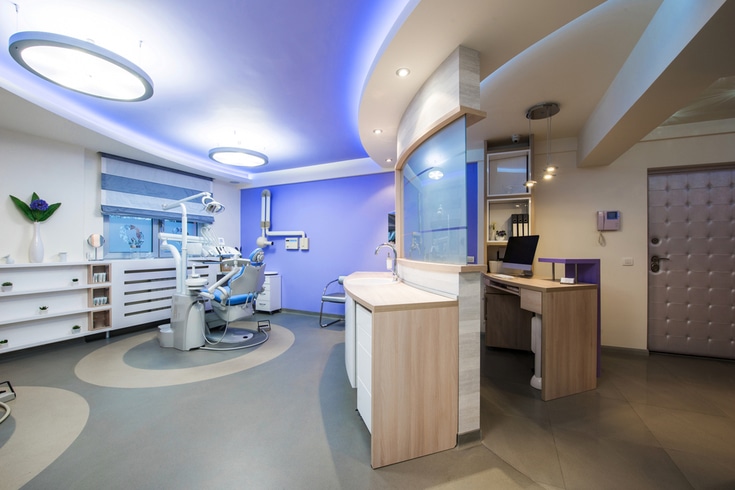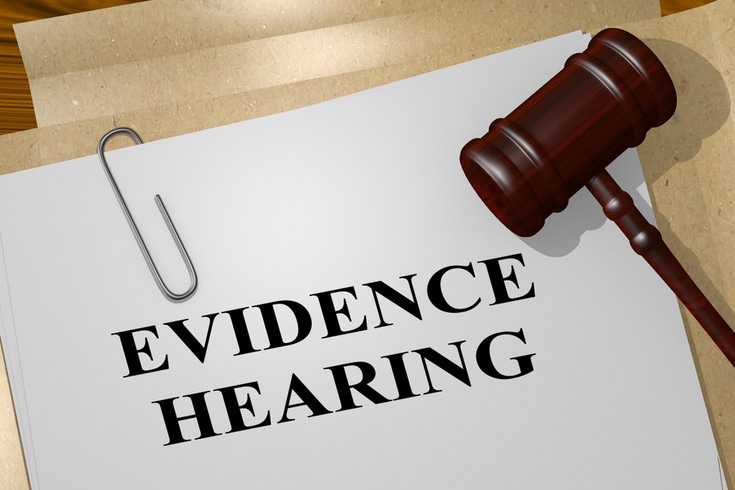What are the circumstances under which a review of a dental clinic can be removed as illegal due to defamation?

In various aspects of life, the number of people using online review sites is increasing. When planning to visit restaurants, beauty salons, hospitals, or when intending to purchase electrical appliances or books, people tend to rely more and more on the scores and reviews on these sites.
On the other hand, the number of cases of reputational damage caused by malicious evaluations and misunderstandings in negative comments is also increasing. When searching for a company or store on Google’s search engine, reviews often appear at the top. Malicious evaluations and comments can lead to a decrease in sales or a drop in social reputation, causing an increase in reputational damage. This is also true for reviews of dental clinics, causing serious damage.
If the content of a review for a dental clinic is false and contains facts that could lower its social reputation, it could potentially be considered defamation, and it is necessary to promptly delete it. However, not only for dental clinics, but there are also unique difficulties in deleting comments and identifying posters on review sites.
In this article, we will explain the difference between when a preliminary injunction for deletion is granted and when it is not, assuming that a review for a dental clinic constitutes defamation.
https://monolith.law/reputation/slander-delete-law[ja]
Challenges Unique to Review Sites
The difficulties in removing comments or identifying posters on review sites, not limited to dental clinic review sites, stem from the ‘public nature’ of reviews.
Individual posts on review sites are considered to contribute to the right of users to know and are thought to have a public nature. If these are easily deleted, it could lead to a chilling effect, hindering freedom of speech. Additionally, it could result in a distorted situation where only positive reviews remain, which is seen as damaging the users’ right to know.
In other words, review sites are meant to disseminate information to other users, inform the public of facts, and serve the public interest by providing material for criticism and evaluation. Actions related to facts concerning public interests are presumed to be conducted for public benefit unless there are special circumstances. Unless there are special circumstances, such as a lack of sincerity in the posting attitude or an intention to vent personal grudges or pursue personal gain, it cannot be said that the post is not primarily for the purpose of public benefit.
Furthermore, it is a common view that business operators who conduct business for the general public should tolerate a certain degree of negative reviews, as long as they are expressing opinions or critiques as users and are not deviating from the realm of opinion or critique to the extent of personal attacks or business obstruction.
It is also believed that the general readers of review sites understand that it is a platform where users post favorable or critical information about the subject of the review based on their personal experiences. For example, even if they come across a negative review about a certain dental clinic, they fully understand that it contains a lot of personal impressions and subjective evaluations (it is just one of the subjective opinions), so a negative review does not immediately lower the social evaluation of the dental clinic.
Regardless of whether this is right or wrong, as long as such views exist in general, the removal of posts on review sites and the disclosure of sender information, not limited to dental clinics, become more difficult compared to posts on bulletin boards or SNS.
https://monolith.law/reputation/google-map-reputation-delete-way[ja]
https://monolith.law/reputation/libel-law-utility[ja]
Case Where Deletion Provisional Disposition Was Not Granted

A dental clinic in Osaka, specializing in orthodontics, filed a provisional disposition order for deletion against Google LLC, the operator of Google Maps, claiming that a comment posted as a review with a one-star rating was defamatory.
When requesting the deletion of defamatory comments, you can use a procedure called “provisional disposition” instead of a “lawsuit (litigation)”. A provisional disposition is a procedure that ends in a shorter period than a regular lawsuit through the court, and it secures a certain state similar to when you win a preliminary trial before a formal trial. It is not recognized unless there is a circumstance that cannot wait for the trial to end (necessity of preservation). The application for post deletion is carried out promptly by the method of provisional disposition because there is a risk that many views will be made and rumors will spread while waiting for the result of the formal trial. The court’s judgment on the provisional disposition is made in the form of a “decision”, not a “judgment”.
https://monolith.law/reputation/provisional-disposition[ja]
The Comment in Question
The content of the comment that the dental clinic in question had a problem with was:
- There were several times when I had to wait more than two hours from the reserved time
- I was made to wait for a long time even when it was my turn and I was receiving treatment
- Although the planned treatment period was two and a half years, it took more than three years
- The faces of the clinic’s employees change frequently
- They let the assistant take the X-ray
- I witnessed a clinic staff arguing with another patient
- The implant anchor was still attached even after the bracket was removed
- I searched because the director claimed to be a member of the Orthodontic Society, but I couldn’t find it
And so on.
The Court’s Judgment
The court first expressed the view that “it is clear that the article in question can be understood as a post by a patient who was dissatisfied with the treatment, and it only describes the facts and impressions that the patient experienced within the range of what he or she saw and heard”. Specifically,
The facts that the impressions of the article in question are based on are not necessarily specific, the frequency of “being made to wait more than two hours several times” is not clear in the treatment period of more than three years, and the length of time “being made to wait even during treatment” lacks concreteness. The reason for the extension of the treatment period is not understood by the poster himself, and it is ambiguous what kind of exchange of questions and answers about the remaining treatment period was. Regarding the “argument with other patients”, it is not mentioned what kind of disagreement there was, or what kind of exchange there was in terms of the volume of the voice, etc.
Also, it is not certain whether the poster’s idea that “the implant anchor should be removed immediately after the bracket is removed” is reasonable from a medical point of view, and it can be seen as nothing more than an amateurish idea being expressed. The article that points out the fact that “the assistant is taking the X-ray” is unclear whether it was witnessed when using the clinic or heard from a third party, and even if it was witnessed, it is not clear who the “assistant” is, and it is unclear whether it was mistaken for a certain operation that is assisted at the clinic during the X-ray shooting.
And, the director is not a “certified doctor/specialist” of the Orthodontic Society, which is “a person who has appropriate and sufficient knowledge and experience in orthodontic treatment”, and claims that he does not have the same knowledge and experience, but only describes the information about the search results by the poster, and does not actively describe that the director does not correspond to the certified doctor, and in fact, it may be that he could not find it because the search method was wrong.On the page of the site in question related to the clinic in question, another article is posted after the article in question. The evaluation is the highest of the five stages, and in addition, it is described that the explanation was easy to understand so that it could be understood, the treatment was good, and subjectively satisfied. From the fact that it was posted after the article in question, it is presumed that there was also an intention to argue against the content of the evaluation and word of mouth based on the article in question. Currently, the evaluation and word of mouth about the clinic in question displayed on the site in question are only these two, so general viewers should also view the other articles.
Osaka District Court Sakai Branch 2019 Decision
And, looking at the article in question as a whole,
- There are parts that are positively evaluated
- The poster seems to have been satisfied at first, considering that the poster received treatment until the end without changing hospitals for more than three years, and that the purpose of the visit was somewhat achieved
- The price is low
- The initial consultation and diagnosis were reliable
Taking into account that the poster seemed to be initially satisfied, it is inevitable to some extent that criticisms about the skill and service content of the dental business will be received in the course of doing business, and it is not recognized that the article in question exceeds the tolerance limit and lowers its social evaluation, and the application for a provisional disposition order for post deletion was dismissed.
Examples of Granted Provisional Disposition for Deletion

A dental clinic in Tokyo has filed for a provisional disposition order for the removal of comments on Google Maps, claiming that they infringe on their rights to reputation.
The Comments in Question
The comments that were problematic in this case were as follows:
- If it’s ceramic, it’s about XXX, if it’s an implant, it’s about XXX, which is higher than average
- It’s considerably more expensive than what’s stated on the website
- Despite the treatment cost being extremely high, the skills of the part-time doctors are the worst
- All the teeth treated with ceramic became decayed immediately, and even though I asked them to do something about it, they did nothing
- I can’t believe they’re doing this with pride, they’re just getting through the numbers
The Court’s Judgment
First, the court stated that the indication that the treatment cost is high despite the low treatment skills can be said to lower the social evaluation.
In a provisional disposition, the documents prepared by the plaintiff to examine the truth of the alleged facts are called clarification documents. From these clarification documents, the court concluded:
- It cannot be recognized that the treatment cost of this clinic is particularly high compared to others
- According to the clarification documents and the overall purpose of the examination, there were no patients who complained that all the teeth treated with ceramic became decayed after examining all the medical records since the clinic’s establishment
The court concluded, “It cannot be said that the alleged facts are true, and there are no circumstances that suggest the existence of illegal obstruction reasons.”
In such a provisional disposition application, the applicant is called the creditor and the respondent is called the debtor. Regarding the necessity of preservation (deletion of posted articles), the court stated:
“The debtor can argue and respond to reviews on this site as the owner of the store or facility being reviewed. The creditor should respond in such a way. However, there may be many views by a number of people before rebutting on this site, and there are content restrictions derived from the position of the business operator in the rebuttal, so it cannot be said that the social evaluation of the creditor, which has been lowered by this, can be fully recovered. Therefore, it cannot be said that the necessity of preservation disappears because it is possible to rebut.”
Tokyo District Court decision on April 26, 2018 (Gregorian calendar year)
With this, the court accepted the application and ordered the temporary deletion of the comments, on the condition that the creditor provides a security of 300,000 yen within 7 days for the debtor.
Differences in Decisions
What causes these differences in decisions, and where do they occur?
In the case of a dental clinic in Osaka, the problematic post was a negative comment resulting from a misunderstanding by a patient without medical knowledge. It cannot be definitively stated that there was malice, making it difficult to remove the post.
In the case of a dental clinic in Tokyo, the content of the article was quite specific. Therefore, they were able to prepare evidence to claim that it was “not true”. Combined with the results of the examination, it was recognized that there were no circumstances suggesting the existence of a reason to reject illegality.
Even in the case of the dental clinic in Osaka, if it had been possible to prepare objective evidence that the statement “the assistant is taking X-rays” was not true, the outcome might have been different.
Summary

Procedures for deleting comments on review sites and identifying posters involve unique difficulties from the perspective of “public interest,” and require a certain level of expertise, such as preparing specific evidentiary materials.
Furthermore, while provisional dispositions are swift procedures, they:
- Often lead to substantive discussions during the examination procedure, unlike document-centered trials
- Require supplementary arguments and evidence to be prepared in a short period due to the short intervals between examination dates
- Require sufficient documents and evidence to be prepared at the application stage to anticipate subsequent developments, otherwise it can be challenging
Thus, it can be said that these procedures demand more of a lawyer’s skill and experience than regular trials.
Depending on the response, there is a risk of failing the deletion request. This is a field where you should seek the assistance of a lawyer with extensive experience in dealing with online reputational damage.
Category: Internet





















